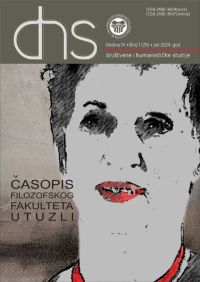Womanhood and Democratic Household in Louisa May Alcott’s Little Women
Womanhood and Democratic Household in Louisa May Alcott’s Little Women
Author(s): Nataša V. NinčetovićSubject(s): Language and Literature Studies, Studies of Literature, Theory of Literature, American Literature, Sociology of Literature
Published by: Filozofski fakultet Univerziteta u Tuzli
Keywords: Louisa May Alcott; Little Women; womanhood; democratic household; actualisation;
Summary/Abstract: This paper deals with the issues of womanhood and democratic household in Little Women, a novel by Louisa May Alcott. The theoretical framework for the research is Barbara Welter’s classic essay on the concept of “true” womanhood in Victorian America. By analyzing the four cardinal traits of proper womanhood as reflected in the novel, the conclusion emerges that Meg, Beth, Jo, and Amy’s growing into womanhood simultaneously confirms the limitation of women’s potential in Victorian America and testifies to the struggle for actualization. The development of the four girls is under the indisputable influence of both the gender discourses that prevail in society and the progressive views of their mother. However, since each girl interprets these visions differently and adapts them to their various personalities, their paths to womanhood are unique. Finally, the paper aims to demonstrate that the March sisters attempt to strike a balance between actualization and adaption to the needs of the family, two equally important, but opposing aspirations. In conclusion, the actualization of the March girls, initially jeopardized by the limitations of patriarchal culture, is further complicated by their desire to remain true to their family’s (mother’s) teaching, which is especially emphasized during Amy and Jo’s attempts to realize their artistic ambitions.
Journal: DHS-Društvene i humanističke studije: časopis Filozofskog fakulteta u Tuzli
- Issue Year: XV/2024
- Issue No: 25
- Page Range: 325-338
- Page Count: 14
- Language: English

